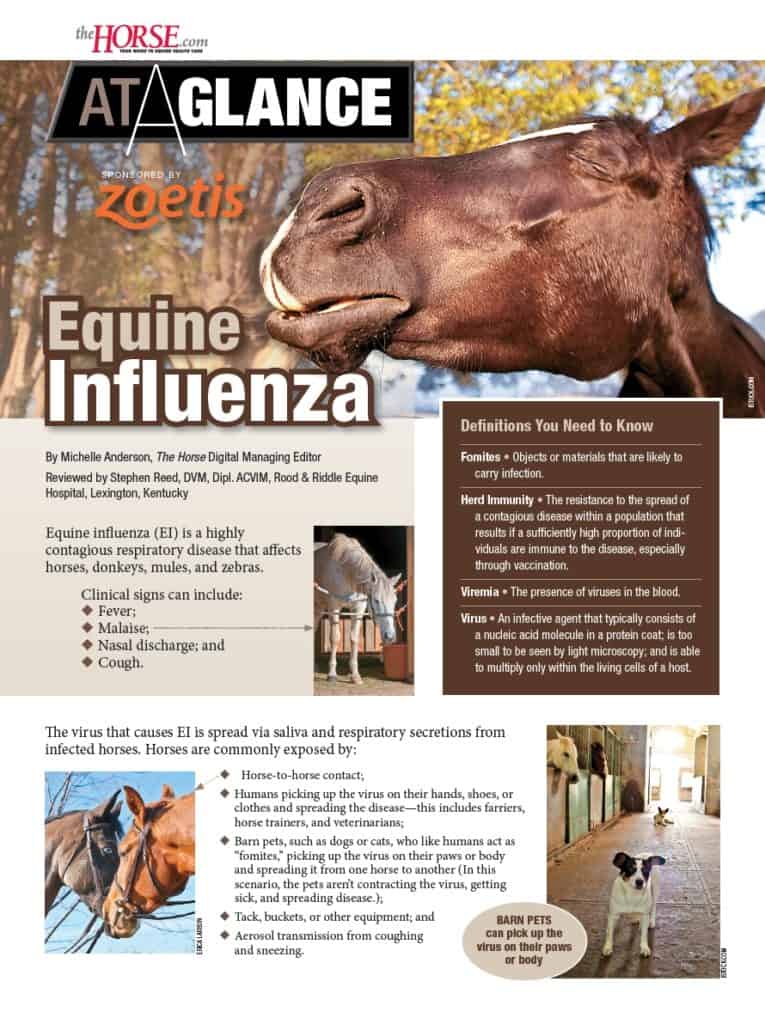
The Evolution of Equine Infection Control
Dr. Josie Traub-Dargatz shares lessons learned from equine disease outbreaks and tactics for avoiding infection spread.

Dr. Josie Traub-Dargatz shares lessons learned from equine disease outbreaks and tactics for avoiding infection spread.

From 1995 to 2014, the OIE received reports of 54 disease events associated with international horse movement.

Guidelines are readily available, but common sense is the first step to effective biosecurity, one veterinarian says.

Find tips on managing and preventing a “perfect storm” of infectious disease spread at horse competition facilities.

Vaccination and biosecurity can help keep your horse healthy when you take him off the farm.

Learn the latest on diseases horses can get from ticks and why they continue to frustrate veterinarians and researchers.

The mainstays of biosecurity still center around good hygiene, diagnostics, quarantine, isolation, and traffic control.

Controlling disease spread can be challenging. A veterinarian offers tips on how to react if your farm becomes infected.

What equine biosecurity methods do you use around your horse farm or facility?

Equine influenza is a highly contagious respiratory disease. Learn how to protect your horse!

With EHV cases reported from California to Kentucky already in 2017, get information you need to protect your horse.

Don’t wait for another disease outbreak to brush up on your EHV-1 knowledge.

Implement appropriate biosecurity measures pre-emptively, as infectious disease is an ever-present risk with horses.

You know cleaning and disinfecting exposed surfaces helps prevent disease spread, but what’s the best way to do it?

Panelists discussed the potential impact on equine trade, identification, biosecurity, competition travel, and more.

Jacqueline Smith, PhD, explains how geographic information systems can help monitor and even predict disease outbreaks.
Stay on top of the most recent Horse Health news with
"*" indicates required fields